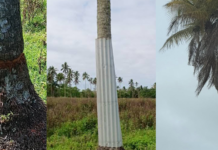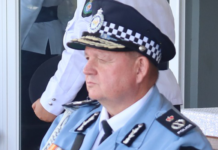While Tonga is globally recognised as the name of a Polynesian kingdom in the South Pacific, few people know that an entirely distinct ethnic group—the Tonga, also known as Batonga thrives in southern Africa.

Separated by thousands of miles of ocean and history, these two communities share nothing but a name, having developed completely different cultures, traditions, and political trajectories.
The African Tonga are Black Africans, while Pacific Tongans are brown-skinned Polynesians. Despite these racial differences, both groups share some surprising similarities: they are both skilled fishing communities and share cassava as a dietary staple.
Religiously, the groups diverge significantly. While the African Tonga maintain traditional beliefs in God without formal Christian affiliation, Pacific Tongans are predominantly strict Christians, a legacy of 19th century missionary influence. This spiritual contrast highlights how identical names can mask profoundly different worldviews.
The Kingdom of Tonga
Tonga, a Pacific island nation, is home to a people with a distinct cultural identity shaped by the concepts of tu’a (inferior) and ‘eiki (superior). Every Tongan is born into a dual status: as tu’a by belonging to their father’s lineage and as ‘eiki through their mother’s line. In the mother’s family, she and her children receive the highest honour, particularly during family events. Conversely, they hold the lowest status in cultural ceremonies on their father’s side.
With around 200,000 Tongan speakers worldwide, the country itself is an archipelago of more than 170 islands, many of which are uninhabited. Located near the International Dateline, its closest neighbours are Fiji to the west and Niue to the east. For centuries, Tongan society has been organised into three primary social classes: commoners (kakai), nobility (hou’eiki), and royalty (tu’i), with the king wielding supreme authority.
This hierarchical system, known as nofo ‘a kāinga, shares similarities with Western social structures while incorporating distinct Tongan concepts of kinship and status. Beyond this formal classification, Tongans observe additional, more nuanced social hierarchies that guide daily life and cultural practices.
The most fundamental social units include kāinga (extended family) and ‘ulumotu’a (family head), with special importance given to the mehekitanga (the father’s eldest sister), who occupies a position of great respect and authority. Another crucial system encompasses fānau (children), tuofefine (sisters), and tamai (father), which governs familial relationships and responsibilities.
While Tongans abroad predominantly follow the mehekitanga and tuofefine systems, many villages in Tonga continue to operate within the traditional kakai, hou’eiki, and tu’i hierarchy. Many Tongan residents are culturally influenced by the mehekitanga and tuofefine system, as not all land is controlled by chiefs or royalty.

Tonga’s political system has long been known for its deep-rooted monarchy, one of the few in the world where succession follows a strict patrilineal system—passed from father to eldest son, much like European dynasties. However, in 2010, Tonga underwent a historic shift, transitioning from an absolute monarchy to a constitutional democracy. While the royal family remains highly revered, political power is now shared with elected officials, marking a new era in the nation’s governance.
Tongans are highly educated, and more live in the diaspora, especially in New Zealand, Australia and the USA, than in Tonga. The Polynesian country has been significantly influenced by Western civilisation, particularly through Westernisation, while still maintaining many traditional practices and values
The prevailing scientific consensus, supported by both genetic and archaeological evidence, indicates that the ancestors of Tongans and other Polynesians originated in Asia, primarily Taiwan and the northern Philippines.
People of Tonga speak the Tongan language, but their official language is English.
Tonga in Africa
The Tonga people of Zambia and Zimbabwe, commonly referred to as Batonga, are a Bantu ethnic group primarily concentrated in southern Zambia and northern Zimbabwe, with smaller populations in Mozambique. They share cultural and historical ties with the Batoka people, who form part of the broader Tokaleya ethnic group in the same region. However, it’s important to note they are not related to the Tonga people of Malawi, despite sharing a similar name.
The Tonga people of northern Malawi trace their origins to the dissolution of the Nkhamanga Kingdom in the early 17th century. This fracturing occurred when Ngoni warriors, who had migrated northward while fleeing Zulu expansion in South Africa, launched raids against the western Nkhamanga Kingdom. The kingdom ultimately divided into two distinct groups – one becoming the Tonga people we know today, while the other remained as the Tumbuka people.
Despite their political separation, linguistic evidence confirms their shared heritage. Glottolog classifies both the Tonga and Tumbuka languages within the same language family, underscoring their common ancestry. This linguistic connection serves as an important reminder of their historical unity before the kingdom’s division.
The Ngoni raids had devastating consequences for the newly formed Tonga communities. The invaders primarily targeted their settlements for food supplies to sustain their migrating populations. They also targeted Women to incorporate into Ngoni society and young men to be conscripted into Ngoni military regiments
Across the Zambian border, the Tonga language assumes greater prominence as a regional lingua franca. Current estimates suggest about 1.38 million speakers in Zambia with an additional 137,000 in Zimbabwe. This linguistic influence extends beyond ethnic Tonga communities, serving as a communication bridge between various groups. Meanwhile, in northern Malawi’s Nkhata Bay District, the Lake Shore Tonga (or Nyasa Tonga) speak a completely separate Bantu language, demonstrating how the shared “Tonga” name masks significant linguistic diversity across these African communities.
Historians have traced the Batonga’s origins to the early 17th century collapse of the Nkhamanga Kingdom. This political disintegration occurred during the turbulent Ngoni migrations, themselves sparked by the wider upheavals of the Zulu wars in southern Africa. The kingdom’s fracture produced two distinct but related groups: the Tonga and the Tumbuka peoples. Modern linguistic studies confirm their shared heritage, with both languages belonging to the same Bantu family despite centuries of separate development.
The Batonga maintain a unique cultural identity distinct from South Africa’s Tsonga people. Their traditional practices reflect deep connections to their environment, particularly through spiritual traditions tied to the Zambezi River. Renowned for their agricultural expertise and intricate beadwork artistry, the Batonga also hold historical significance as patrons of Zambia’s Kafue Twa, a hunter-gatherer community. This multifaceted cultural legacy continues to shape contemporary Batonga society while preserving their ancestral traditions.







